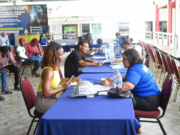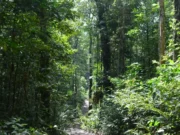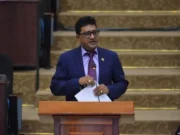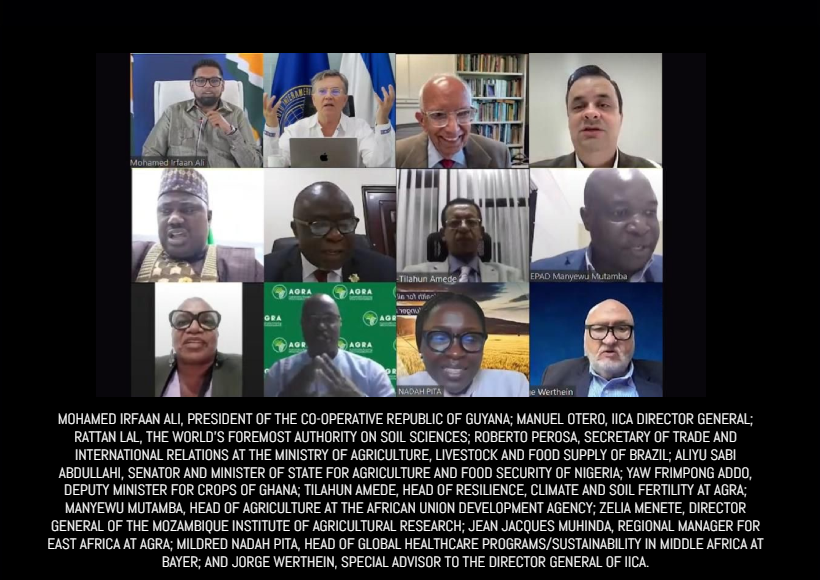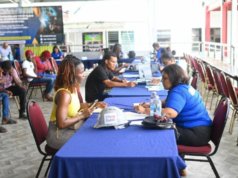The Alliance for a Green Revolution in Africa (AGRA) and the Inter-American Institute for Cooperation on Agriculture (IICA) recently launched the biregional “Living Soils” initiative.
According to the IICA, based on its successful implementation in the Americas, the Living Soils initiative will seek to restore degraded soils, rehabilitate acid soils, increase agricultural and landscape productivity and improve climate resilience in African agrifood systems.
Participating in the recent launch event were President of Guyana and current Chair of the Caribbean Community (CARICOM), Dr. Irfaan Ali; Rattan Lal, recipient of the 2020 World Food Prize; Manuel Otero, Director General of IICA; as well as ministers of Agriculture of several African countries, AGRA authorities, private sector representatives, and other senior agricultural officials of the Americas and Africa.
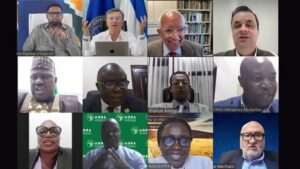
Designed to improve rural well-being, productivity and food security while respecting environmental limits and making rational use of natural resources, Living Soils links science and public policies to rehabilitate and protect soils, whose degradation is threatening global food security.
Launched in 2020, Living Soils is spearheaded by IICA and Rattan Lal, the world’s leading authority on soil science and Director of the Carbon Management and Sequestration Center (C-MASC) at The Ohio State University.
At the launch event for the initiative in Africa, Lal, who is also an IICA Goodwill Ambassador for Sustainable Development Issues, called for driving and replicating what he described as “the miracle of the Brazilian Cerrado”, in reference to a unique biome that covers almost a quarter of Brazil’s land area and that is characterized by savanna vegetation and a wealth of flora and fauna.
To protect this territory, the South American country has enacted laws and established policies to regulate deforestation and foster sustainable agriculture practices related to the use and conservation of biodiversity.
“Africa possesses the natural resources required to create a miracle; Africa can become the next breadbasket of the world”, said Lal. “The strategy to achieve this should involve translating agronomic and soil management science into action, as well as developing policies that are pro-nature, pro-agriculture and pro-farmer, which is why this initiative is being launched in a timely manner,” he added.
In his presentation, the award-winning scientist added that, although African production systems are increasing their productivity, they are doing so at a slow pace. Therefore, he considered it necessary to take a big leap by fostering “knowledge and technology that is currently not being implemented, as well as improving the management of African soils, which are facing challenges such as degradation, primarily due to erosion, droughts, nutrient depletion, salinization, reduction of organic carbon in soils, urbanization and climate change”.
In the same vein, President Ali, stated that the Living Soils program “has tremendous significance for Africa because it addresses key environmental challenges and will allow for implementing regenerative agriculture practices, enhancing biodiversity and soil health, improving food security and contributing to climate resilience”.
“Africa possesses 30% of the world’s mineral reserves, 8% of its natural gas, 40% of its gold and 90% of its chromium and platinum. It has the largest reserves of cobalt, diamonds and uranium, and great mineral, agricultural and environmental potential. Africa is home to 65% of the world’s uncultivated land and 10% of the earth’s renewable water resources. It has tremendous potential to assume a leading role in the global supply chain and position itself as a key player in feeding the world,” mentioned Ali.
Guyana’s head-of-state also highlighted IICA’s strong leadership in the initiative, which had allowed for promoting sustainable agrifood systems that can transform the lives of small-scale farmers and rural dwellers. “In this developing world in which we are working to build a resilient, viable and competitive food ecosystem, IICA is carrying out commendable work, and I would like to acknowledge this leadership,” he said.


